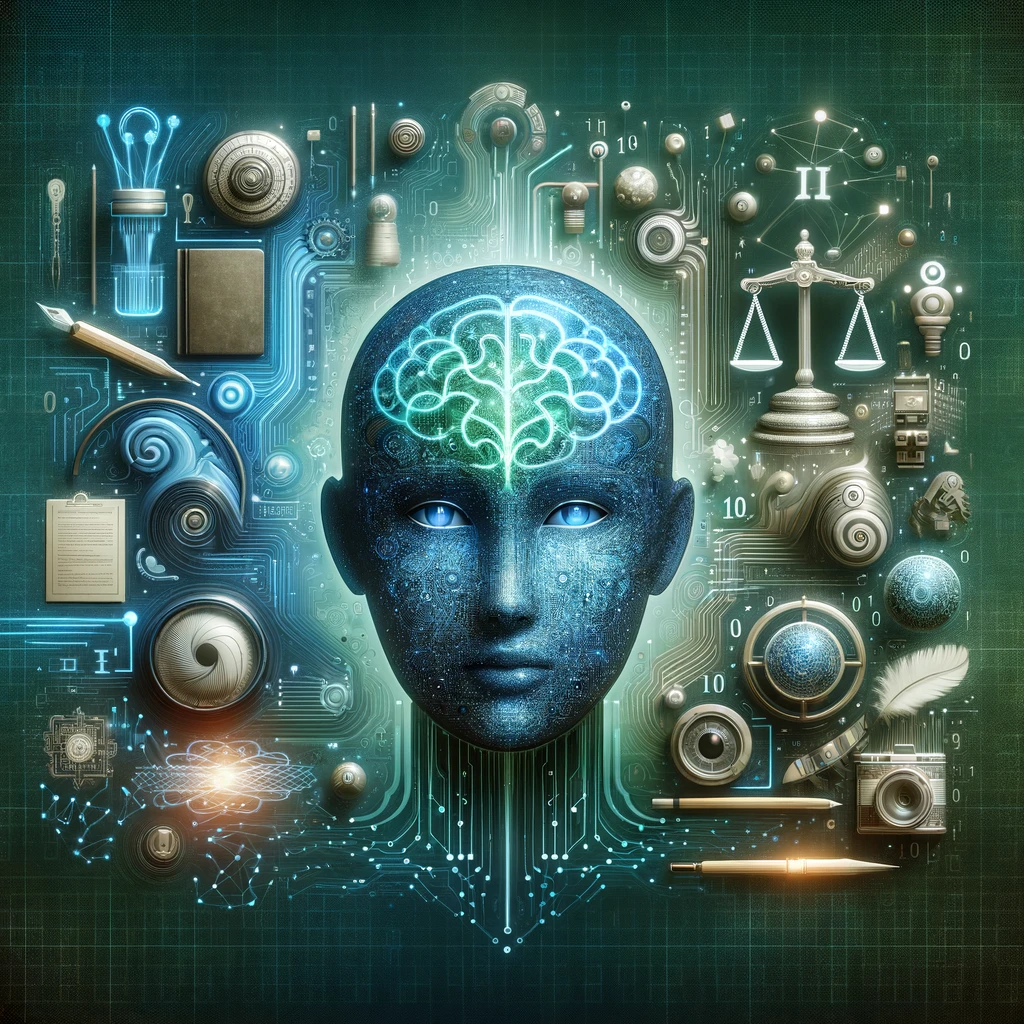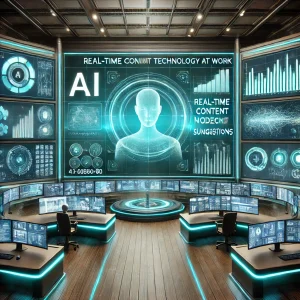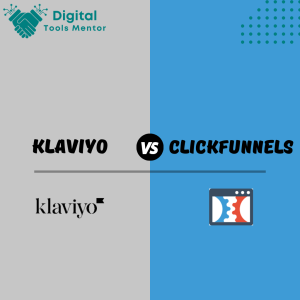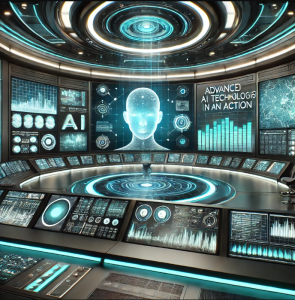Ethical Considerations in AI-Generated Content
In recent years, the integration of Artificial Intelligence (AI) in content creation has marked a significant shift in how we produce and consume digital content. This blog post aims to introduce the concept of AI-generated content, exploring its growing influence and implications in various fields of content creation. AI-generated content refers to any piece of content, from written articles to digital art and music, created with the assistance of AI technologies. These AI systems are programmed to understand and mimic human-like content creation, often producing work at a speed and volume that is challenging for humans to match. Leveraging machine learning algorithms, natural language processing, and other advanced technologies, AI can now generate coherent, contextually relevant, and often creative content. The advent of AI in content creation is not just a technological marvel but also a response to the ever-increasing demand for fresh, relevant content in the digital age. Across various sectors, from journalism and marketing to entertainment and academic research, AI tools are becoming indispensable.
- In Journalism: News outlets are using AI to quickly generate news reports on finance, sports, and more, allowing journalists to focus on in-depth stories.
- In Marketing: Marketers leverage AI to create personalized content for different segments of their audience, enhancing engagement and ROI with the help of AI tools.
- In Creative Fields: From scriptwriting to music composition, AI tools are being used to inspire new creative processes and outcomes.
The proliferation of AI in content creation raises significant questions about the future of content generation, its authenticity, ethical implications, and impact on traditional content creation roles. As AI technology continues to evolve and become more sophisticated, its role in content creation is set to grow, making it a topic of crucial importance in the digital landscape.
Rise of AI in Content Generation
The integration of Artificial Intelligence (AI) in content generation has been a transformative force, evolving rapidly over the past few years. This shift in content creation dynamics can be attributed to significant advancements in AI technologies. Let’s delve into how AI technology has evolved to generate content and explore various examples of AI applications in content creation.
Evolution of AI in Content Generation
- Early Beginnings with Simple Algorithms: Initially, AI in content generation began with simple algorithms designed to automate basic content tasks, like data-driven reports and simple news summaries.
- Advancements in Natural Language Processing (NLP): The development of sophisticated NLP technologies allowed AI systems to understand and mimic human language more effectively, paving the way for more complex content generation.
- Machine Learning and Predictive Analytics: The integration of machine learning enabled AI to not only generate content but also learn from data inputs to improve its content generation capabilities over time.
- Adoption of Generative AI: The emergence of generative AI models, like GPT (Generative Pre-trained Transformer) and others, revolutionized content creation by producing high-quality, contextually relevant, and creative content.
Examples of AI in Content Creation
- AI Writing Assistants: Tools like Grammarly and Hemingway use AI to assist in writing by providing grammar checks, style suggestions, and readability improvements.
- Automated Journalism: News organizations like Reuters and Associated Press use AI to generate financial reports, sports news, and election results, quickly disseminating information to the public.
- Content Marketing: AI-driven tools are being used to create personalized marketing content, generate SEO-friendly topics, and automate social media posts, significantly enhancing marketing efficiency.
- Creative Writing and Art: AI is being used to compose music, write poems, and even create artworks, challenging our traditional notions of creativity.
- Academic and Research Writing: AI tools assist researchers in compiling data, creating summaries, and even drafting sections of research papers.
- Chatbots and Virtual Assistants: These AI-driven tools interact with users, generate automated responses, and even create content based on user queries.
The rise of AI in content generation reflects a significant leap in technology, offering both opportunities and challenges in the content creation landscape. As AI continues to evolve, its role in content creation is becoming more complex and influential, reshaping how we perceive and engage with content.
Ethical Concerns in AI-Generated Content
As AI-generated content becomes more prevalent, it raises several ethical concerns that need to be addressed to maintain the integrity and trustworthiness of content creation. The primary ethical concerns revolve around authenticity, transparency, and accountability. These issues not only challenge the ethical boundaries of AI technology but also have significant implications for trust and credibility in the content it produces.
- Authenticity
- Originality vs. Imitation: AI-generated content often raises questions about originality, as AI algorithms can produce content that closely mimics human writing or art, blurring the lines between original creation and imitation.
- Concerns of Plagiarism: There’s a risk that AI could inadvertently replicate existing content without proper attribution, leading to plagiarism concerns.
- Transparency
- Disclosure of AI Involvement: It’s crucial for content creators to disclose the use of AI in content generation. Transparency is key to maintaining the trust of the audience.
- Understanding AI Limitations: Acknowledging that AI-generated content is based on algorithms and data inputs, and may lack the nuanced understanding and context that human creators provide.
- Accountability
- Responsibility for Content: Determining who is accountable for AI-generated content, especially in cases of misinformation, ethical violations, or legal implications, is complex.
- Quality and Accuracy: Ensuring the accuracy and quality of AI-generated content is essential, particularly in fields like journalism or academic research where factual correctness is paramount.
Implications on Trust and Credibility
- Impact on Public Trust: Over-reliance on AI for content creation could lead to skepticism and a decline in trust among audiences, especially if AI-generated content is indistinguishable from human-created content.
- Credibility of Information: The potential for AI to disseminate inaccurate or biased information can have serious implications for the credibility of media outlets, publishers, and content creators.
- Informed Audience Decision: Audiences should be able to make informed decisions about the content they consume, which includes knowing whether content was generated by AI or humans.
Addressing these ethical concerns is essential for maintaining the integrity of AI-generated content. As AI continues to advance, it’s imperative for content creators, platforms, and regulators to establish ethical guidelines and standards that ensure authenticity, transparency, and accountability in AI-generated content.
Ethical Considerations in AI-Generated Content: Authorship and Originality
The integration of AI in content generation has ignited a complex debate around authorship and originality, raising pivotal questions about the nature of creativity and the definition of a ‘creator.’ As AI systems produce increasingly sophisticated and original content, the lines between human and machine-generated creativity become blurred, leading to ethical dilemmas in the realms of intellectual property and artistic merit.
Debate Around Authorship
- Who is the Creator?
- The central question in the authorship debate is whether the creator is the AI itself, the developer of the AI, or the user who inputs data into the AI system. This issue becomes particularly contentious when considering copyright and intellectual property rights.
- The lack of clear legal guidelines on AI-generated content further complicates this debate, leaving a grey area in terms of ownership and rights.
- Human vs. Machine Creativity
- There is an ongoing discussion about whether AI can truly be ‘creative’ or if it merely replicates and remixes human ideas. This brings into question the value and uniqueness of AI-generated content compared to human creations.
Concerns about Originality and Potential Plagiarism
- Originality in AI Content
- AI-generated content is often based on existing data sets, which includes previously created content. This raises concerns about the originality of such content and whether it can be considered a new creation.
- AI’s ability to generate unique content is dependent on its programming and the data it’s fed, making the concept of originality in AI-generated content complex and multifaceted.
- Plagiarism and AI
- The potential for AI to unintentionally replicate existing content poses significant plagiarism concerns. As AI systems cannot discern copyrighted material, they might create content that closely resembles existing works without proper attribution.
- Ensuring that AI-generated content is free from plagiarism is challenging, requiring careful oversight and possibly new technological solutions.
The authorship and originality concerns in AI-generated content necessitate a reexamination of our traditional understanding of creativity, authorship, and intellectual property. As AI technology continues to evolve, it’s crucial for creators, users, and policymakers to engage in this dialogue and establish ethical and legal standards that address these complex issues.
Ethical Considerations in AI-Generated Content: Transparency and Disclosure
Transparency and disclosure play crucial roles in the ethical landscape of AI-generated content. As AI becomes more integrated into content creation processes, the need for clear communication about the use of AI tools becomes paramount to maintain trust and integrity in the content we consume.
Importance of Transparency in AI-Generated Content
- Building Trust with Audiences
- Transparency about the use of AI in content creation is essential to build and maintain trust with the audience. When readers, viewers, or listeners are aware of the role of AI, they can make more informed judgments about the content’s credibility and relevance.
- Ethical Responsibility
- Disclosing AI involvement upholds ethical standards in content creation. It acknowledges the potential limitations and biases of AI-generated content and allows audiences to understand the context in which the content was produced.
- Setting Realistic Expectations
- Transparency helps set realistic expectations about the nature and capabilities of AI-generated content. It clarifies that while AI can produce valuable and insightful content, it may not always capture the nuanced understanding that comes from human experience.
How and Why to Disclose the Use of AI in Content Creation
- Methods of Disclosure
- Direct Acknowledgment: Clearly stating in the content or its accompanying materials (like footnotes, descriptions, or introductions) that AI tools were used in its creation.
- Use of Labels or Icons: Implementing specific labels or icons on AI-generated content to visually indicate the use of AI to the audience.
- Why Disclosure is Necessary
- Preventing Misinformation: Disclosure helps prevent the spread of misinformation by clarifying the source and method of content creation, especially in sensitive areas like news reporting or academic research.
- Respecting Audience Rights: Audiences have the right to know if the content they are consuming is generated by AI, as it might influence their perception or interpretation of the information presented.
- Fostering an Informed Society: In an era where information is abundant, ensuring that people are adequately informed about the nature of the content they consume is fundamental to fostering a well-informed society.
The incorporation of transparency and disclosure practices in AI-generated content is not just a matter of ethical responsibility; it’s a foundational aspect of building a credible and trustworthy digital content ecosystem. As AI continues to shape content creation, prioritizing transparency will become increasingly important in maintaining the integrity of our information landscape.
Ethical Considerations in AI-Generated Content: Bias and Fairness
The issue of bias in AI algorithms is a critical ethical concern in the realm of AI-generated content. AI systems, by their nature, learn from existing data, which can inadvertently perpetuate and amplify biases present in that data. Understanding and addressing these biases is essential to ensure the fairness and diversity of AI-generated content.
Understanding Bias in AI Algorithms
- Origin of Bias in AI
- Data-Driven Bias: AI algorithms can develop biases based on the data they are trained on. If the training data is skewed or unrepresentative, the AI may produce biased content.
- Designer Bias: Biases can also stem from the subjective decisions of the developers who create and train AI systems, reflecting their perspectives or unconscious biases.
- Types of Bias
- Cultural and Societal Bias: AI may propagate stereotypes or culturally biased viewpoints, especially if trained on data from non-diverse sources.
- Content Bias: In content creation, AI may favor certain topics, styles, or perspectives over others, leading to a lack of diversity in the content produced.
The Impact of Biased AI on Content Diversity and Fairness
- Influence on Public Perception
- Biased AI-generated content can shape public opinion in subtle ways, reinforcing certain viewpoints or marginalizing others. This influence is particularly concerning in areas like news generation or political content.
- Limitations on Content Diversity
- When AI algorithms are biased, they may produce content that lacks diversity in perspectives, voices, and styles. This limitation not only hinders the richness of content but also fails to represent the diverse experiences and views of different communities.
- Fair Representation Issues
- Biased AI can lead to unfair representation of individuals or groups in AI-generated content, potentially perpetuating stereotypes or inaccuracies.
- Challenges in Addressing AI Bias
- Addressing bias in AI is challenging due to the complexity of machine learning algorithms and the vastness of data they process. Efforts to mitigate bias must be continuous and evolving.
The ethical challenge of bias in AI-generated content highlights the need for deliberate and ongoing efforts to ensure fairness and diversity. This includes diversifying training data, employing inclusive design practices, and continuously monitoring and adjusting AI outputs. Addressing these biases is not only a technical necessity but also a moral imperative to uphold the principles of equity and representation in the digital content landscape.
Data Privacy and Security
In the realm of AI-generated content, the ethical considerations surrounding data privacy and security are paramount. AI systems often require access to vast amounts of data to generate content, which raises significant concerns about how this data is used, stored, and protected. The handling of such data must be approached with utmost caution to ensure the privacy and security of information.
Ethical Considerations Regarding Data Used by AI
- Data Collection and Consent
- Ensuring that data used by AI for content generation is collected ethically and legally, with explicit consent from individuals whose data is being used.
- Transparency about what data is being collected, how it will be used, and the purpose of its usage is crucial in respecting user privacy.
- Use of Sensitive Information
- Special caution needs to be taken when AI systems process sensitive or personal information. This includes data that could potentially identify individuals or reveal private details about them.
- Ethical Use of Data
- Ethical use of data involves not exploiting or misusing the information gathered. The data should be used in ways that align with the intended purpose for which consent was given.
Privacy Concerns and Security of Information
- Data Privacy Concerns
- Concerns arise when AI tools have the capability to store and potentially share personal data without users’ full understanding or consent.
- The risk of data breaches and unauthorized access to sensitive information is a significant concern, particularly when large datasets are involved.
- Securing Data
- Implementing robust security measures to protect data from unauthorized access, hacking, or other forms of cyber threats is essential.
- Regular audits and updates to security protocols can help in safeguarding data against evolving cyber threats.
- Compliance with Data Protection Regulations
- Adherence to data protection laws and regulations, such as GDPR, is critical. These laws provide guidelines for data privacy and users’ rights regarding their data.
- Accountability in Data Usage
- Organizations using AI for content generation must be accountable for their data practices. This includes being responsible for any data breaches and being transparent about data usage policies.
In short, the ethical considerations in using data for AI-generated content encompass a range of issues from user consent to data security. It’s imperative that organizations employing AI tools for content creation adhere to ethical standards in data usage, ensuring privacy and security to maintain user trust and comply with legal standards.
The Impact of AI-Generated Content on Employment and Skills
The advent of AI-generated content has profound implications for the workforce, particularly in fields traditionally reliant on human creativity and analysis. While AI brings efficiency and scalability, it also poses challenges to employment and demands new skill sets. Understanding these impacts is crucial for adapting to the changing landscape of the workforce.
Impact of AI-Generated Content on Traditional Jobs
- Disruption in Content Creation Roles
- AI’s ability to generate content quickly and in large quantities can lead to a reduction in demand for traditional content creation roles, such as copywriters, journalists, and content marketers.
- However, this disruption can vary across industries and the type of content being produced.
- Complementary Rather Than Replacement
- In many scenarios, AI acts as a complement to human skills, enhancing productivity and creativity rather than completely replacing human roles.
- For instance, journalists can use AI to automate routine news reports, allowing them to focus on in-depth investigative work.
Evolving Skill Sets in the Age of AI
- Adaptation and Reskilling
- Professionals in the content creation sector may need to adapt their skills to work alongside AI effectively. This includes understanding how to operate AI tools and interpret their outputs.
- Reskilling and continuous learning become essential to stay relevant in the job market.
- Emphasis on Creativity and Strategic Thinking
- As AI takes over more routine and analytical tasks, human creativity, strategic thinking, and emotional intelligence become more valuable. Skills in these areas are likely to be in higher demand.
- Technical Proficiency
- Technical skills related to AI and machine learning, such as data analysis and programming, will become increasingly important for professionals in content-related fields.
- Understanding the limitations and capabilities of AI in content creation is crucial for effective use and management.
- Ethical and Critical Analysis
- As AI-generated content raises various ethical concerns, the ability to critically analyze and apply ethical considerations to AI outputs will be a valued skill.
The impact of AI-generated content on employment and skills is multi-faceted, encompassing both challenges and opportunities. While certain traditional roles may face disruption, new roles and skill requirements are emerging, emphasizing the importance of adaptability, creativity, and technical proficiency in the age of AI.
Best Practices for Ethical Considerations in AI-Generated Content
As AI-generated content becomes increasingly prevalent, it’s imperative to establish and follow ethical guidelines and best practices. Ethical AI usage ensures responsible content creation that respects privacy, maintains authenticity, and upholds the integrity of information. Let’s explore key best practices for ethically using AI in content creation, applicable to both companies and individuals.
- Transparency and Disclosure
- Clearly Disclose AI Involvement: Always inform the audience when content is generated by AI. This transparency builds trust and helps the audience make informed decisions about the content they consume.
- Be Open About Capabilities and Limitations: Clearly communicate what AI can and cannot do, including its potential biases and limitations.
- Ensuring Data Privacy and Security
- Safeguard Personal Data: Implement robust data protection measures to ensure that any personal data used by AI is secure and used ethically.
- Comply with Privacy Regulations: Adhere to data privacy laws like GDPR, ensuring that data collection and processing meet legal standards.
- Addressing and Mitigating Bias
- Use Diverse Training Data: Ensure that the data used to train AI algorithms is diverse and representative to reduce the risk of biased outcomes.
- Regularly Test for Bias: Continuously test AI outputs for bias and take corrective measures when necessary.
- Maintaining Quality and Accuracy
- Monitor and Review AI Outputs: Regularly review and monitor AI-generated content for accuracy, quality, and ethical compliance.
- Human Oversight: Maintain human oversight in AI content generation, especially in sensitive areas like news reporting or educational content.
- Ethical Content Creation Practices
- Avoid Misinformation: Use AI responsibly to prevent the spread of misinformation and ensure that the content is factually correct and ethical.
- Respect Intellectual Property: Be mindful of copyright and intellectual property laws, ensuring that AI-generated content does not infringe upon the rights of others.
- Promoting Responsible AI Use
- Educate Users and Creators: Provide training and resources for users and creators on the ethical use of AI in content creation.
- Foster Ethical AI Development: Encourage and support the development of AI tools that prioritize ethical considerations in their design and outputs.
Implementing these best practices is essential for fostering an ethical environment in AI-generated content creation. By prioritizing transparency, data privacy, bias mitigation, and quality, businesses and individuals can responsibly harness the power of AI while maintaining ethical integrity.
Future of AI-Generated Content
The trajectory of AI-generated content is poised for significant evolution, with advancements in technology continually reshaping the landscape of content creation. As we look towards the future, speculations abound on how AI will further integrate into and transform this field. Alongside these advancements, ethical considerations will play a critical role in shaping the societal impact of AI in content generation.
- Increased Sophistication and Creativity
- AI is expected to become more sophisticated in understanding context, emotion, and subtleties in language, potentially creating content that is increasingly indistinguishable from human-generated work.
- Advances in AI may lead to new forms of creativity, enabling the generation of content in innovative and unforeseen ways.
- Greater Integration Across Media
- AI’s role may expand beyond text to more fully encompass other media types like video, audio, and interactive digital experiences, leading to more integrated and immersive content.
- Personalization at Scale
- AI could enable hyper-personalized content creation, catering to individual preferences and behaviors at an unprecedented scale, transforming marketing and entertainment industries.
- Autonomous Content Creation Systems
- Future developments may see AI systems capable of autonomously creating and distributing content based on real-time data and audience feedback, further automating the content creation process.
Ethical Considerations and Societal Impact
- Addressing the Authenticity Challenge
- As AI-generated content becomes more prevalent, distinguishing between human and AI-created content will become crucial. Establishing norms and standards for authenticity will be essential.
- Balancing Personalization with Privacy
- The drive for personalized content must be balanced with the ethical use of data and respect for individual privacy. Striking this balance will be key in maintaining consumer trust.
- Mitigating Bias and Promoting Diversity
- Ensuring that AI systems promote diversity and inclusivity, rather than perpetuating biases, will be vital. This includes developing AI with diverse datasets and continuous monitoring for bias.
- Impact on Employment
- The potential for AI to displace certain content creation jobs will require attention to workforce retraining and the development of new roles that complement AI capabilities.
- Ethical Development and Use
- The ethical development and deployment of AI in content creation will necessitate a collaborative effort among technologists, ethicists, content creators, and policymakers.
The future of AI-generated content holds exciting possibilities, but with these advancements come significant ethical and societal considerations. Navigating these challenges responsibly will be crucial in harnessing AI’s potential to enhance and innovate content creation, while maintaining ethical integrity and societal trust.
Read AI and the Future of Technical Writing
Ethical Considerations in AI-Generated Content: Conclusion
As we conclude our exploration of the ethical considerations in AI-generated content, it’s evident that the intersection of AI and content creation presents both remarkable opportunities and significant challenges. The advancement of AI in content generation heralds a new era of efficiency and innovation, yet it simultaneously raises crucial ethical questions that must be addressed to ensure responsible and beneficial use.
The key to harnessing the potential of AI in content creation lies in striking a balance between technological advancement and ethical responsibility. It involves being vigilant about the authenticity and originality of content, transparent about the use of AI, cautious about biases, respectful of data privacy, and mindful of the societal impact, particularly on employment and skills.
By embracing a balanced approach that prioritizes ethical considerations, we can steer AI-generated content towards a future that not only enhances creativity and productivity but also upholds the values of fairness, transparency, and integrity. This responsible path forward will ensure that AI serves as a tool for good in the ever-evolving landscape of content creation.




